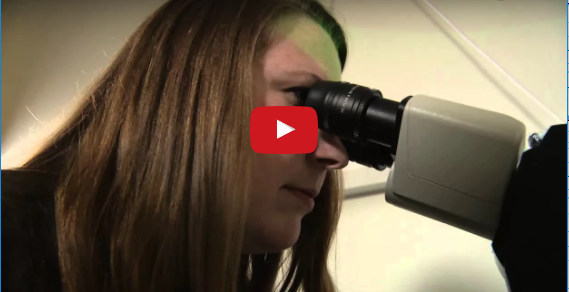Role of the microbiome in regulating pro- and anti-inflammatory lipids in the intestines
The bacteria living in the human gut have a major influence on health and disease by giving off a variety of different signals. Dangerous bacteria such as Salmonella give off signals that can lead to inflammation, whereas beneficial members of a healthy microbiome work to maintain balance and prevent inflammation. We are trying to understand how human host cells interpret these signals and use them to “decide” how to respond.
The intestines can be thought of as a tube through which food passes and nutrients are absorbed. The inner lining of this tube is formed by a layer of epithelial cells. These epithelial cells are important for nutrient absorption, but also act as a wall to keep bacteria away from other parts of the body. This wall is a barrier to both the friendly bacteria that live normally in the healthy intestine as well as dangerous pathogens, and is the first site of contact with both of these kinds of microbes. Epithelial cells are therefore major gatekeepers, and are responsible for integrating signals from the healthy microbiome with signs of danger that might come from, for example, eating food contaminated with Salmonella, and then transmitting signals that tell the immune system that it needs to respond.
We have discovered that some of these secondary signals put out by the epithelial cells are lipids, and these secreted lipids are an important class about which much remains to be understood. We have discovered that whether these lipids are secreted depends in part on whether their dedicated transporters are found on the epithelial cell surface. We are now exploring how the microbiome regulates these transporters and their lipid secretion- what signals are sent from the microbiome? How do they differ during homeostasis and inflammation? How are they turned off once the danger has been neutralized?
In cooperation with Cubist Pharmaceuticals, we are working to find out which specific members of the microbiome affect lipid secretion and transporter function. Additionally, we are working with Dr. Randy Pellish to sample inflamed and uninflamed intestines from inflammatory bowel disease patients and to categorize the differences in microbiome identity and lipid secretion at these sites. Together, these efforts will help us to understand how normal intestinal bacteria affect epithelial and immune function in the intestine, and whether they can be manipulated to control the runaway inflammation that occurs in conditions such as inflammatory bowel disease.
Principal investigators: Rose Szabady, Ph.D., Beth McCormick, Ph.D., and Randy Pellish, M.D.
Objective: Quantify inflammatory lipids in the intestines of IBD patients and identify bacteria associated with production of beneficial lipids.

